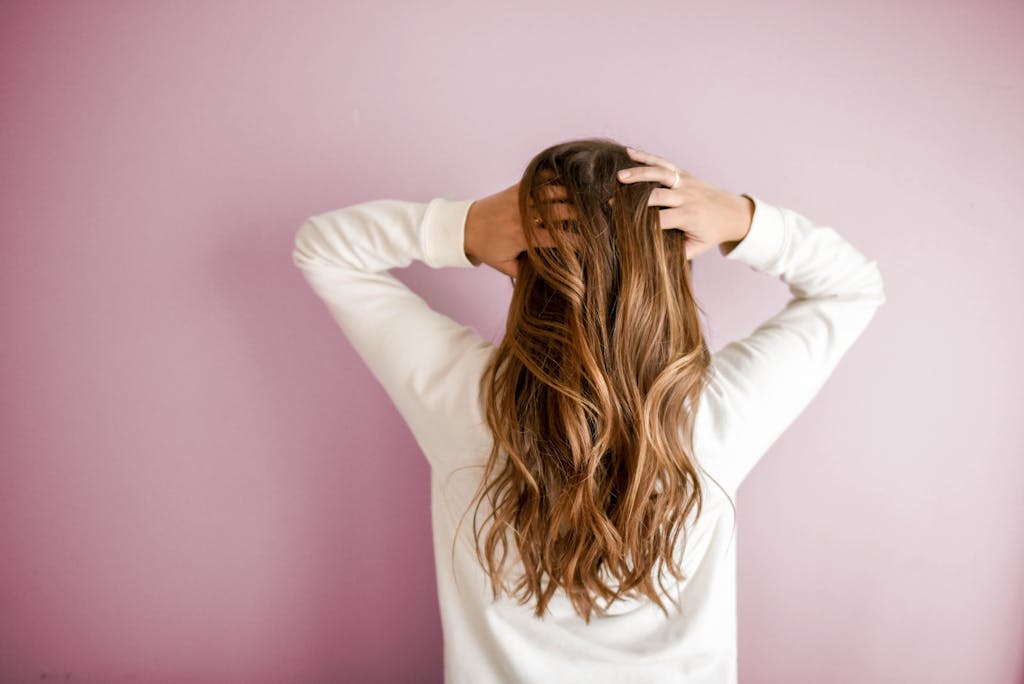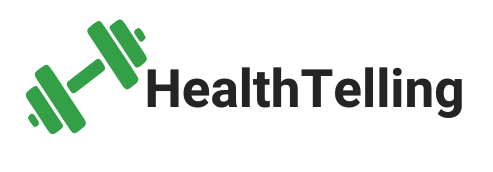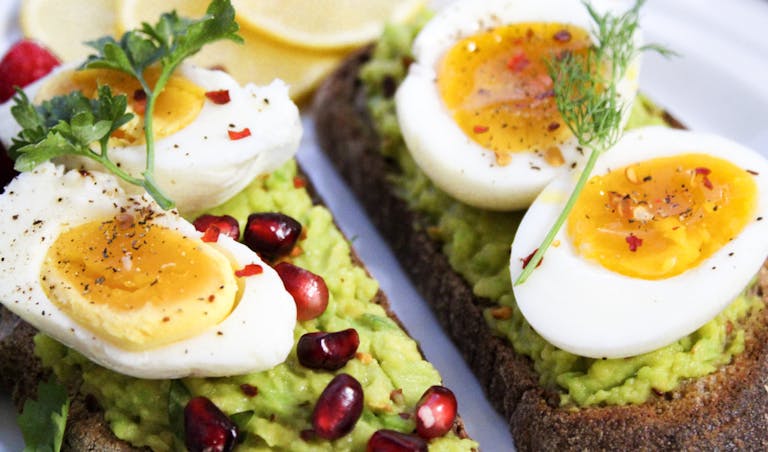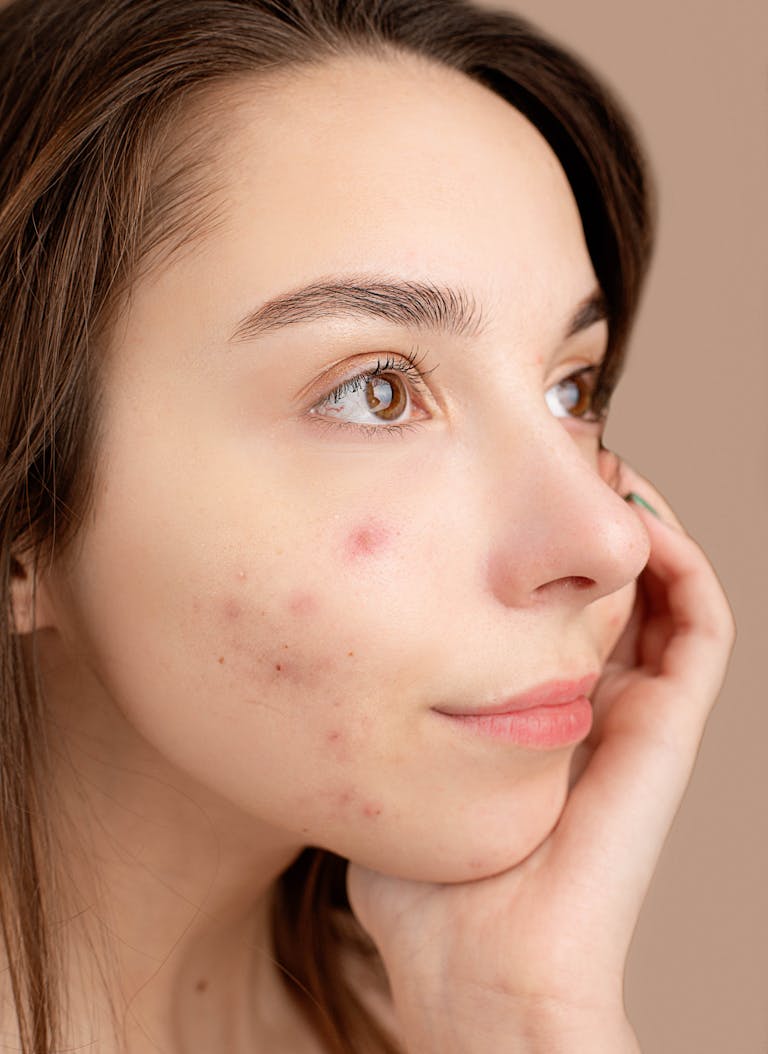Healthy Hair Starts Here: Everyday Habits That Help Your Hair Grow Stronger, Thicker, and Shinier

Hair can be deeply personal. Whether you wear it long or short, straight or curly, colored or natural, how your hair looks and feels often ties into how confident and comfortable you feel in your own skin.
But great hair doesn’t come from one magic product or trend. It comes from everyday habits—how you nourish your body, care for your scalp, manage stress, and treat your strands between wash days.
If you’re noticing breakage, thinning, dullness, or slower growth, don’t panic. Most hair issues are reversible. And often, the solution isn’t just topical—it’s tied to what’s happening inside your body.
Let’s walk through what actually supports strong, healthy hair—and how to start building those habits in a way that’s simple and sustainable.
First, A Quick Look at How Hair Grows
Hair grows in cycles. At any given time, each hair on your head is in one of these phases:
- Anagen (growth phase): Lasts 2–7 years and determines how long your hair grows
- Catagen (transition phase): Lasts a few weeks as hair growth slows
- Telogen (resting phase): Hair rests before eventually shedding and restarting the cycle
On average, we lose about 50–100 hairs a day. That’s normal. But when hair starts shedding more rapidly or isn’t growing back the same way, it’s often linked to stress, diet, hormonal shifts, or scalp health.
How Nutrition Impacts Hair Health
Your hair is made primarily of a protein called keratin, and it relies on steady nutrients to grow and stay strong. If your body isn’t getting what it needs—whether from diet or absorption issues—it’ll prioritize vital organs over your hair, skin, and nails.
That’s why what you eat shows up in your hair.
Here are some key nutrients that support growth and strength:
- Protein: Essential for hair structure
Sources: eggs, fish, lentils, Greek yogurt, tofu - Iron: Carries oxygen to hair follicles
Sources: spinach, red meat, beans, fortified cereals - Omega-3s: Nourish the scalp and reduce dryness
Sources: salmon, walnuts, flaxseed, chia seeds - Zinc: Supports follicle health and repair
Sources: pumpkin seeds, chickpeas, cashews - Biotin (Vitamin B7): Helps strengthen brittle strands
Sources: eggs, almonds, sweet potatoes, avocados - Vitamin D: Linked to hair growth cycles
Sources: sunlight, fortified dairy, mushrooms
A balanced diet filled with whole foods is the best way to support your hair from the inside. If you’re vegetarian, vegan, or dealing with health conditions that affect absorption, talk to your provider about whether a supplement might help.
Don’t Forget: Hydration Matters Too
Dehydration can leave your hair looking dry, frizzy, or brittle. Water keeps your scalp healthy, helps your body absorb key nutrients, and contributes to elasticity.
Aim to drink water consistently throughout the day. If your lips are dry or your skin feels tight, there’s a good chance your hair’s feeling it too.
Scalp Care Is Skin Care
Healthy hair starts with a healthy scalp. Think of your scalp like the soil—if it’s dry, inflamed, or congested, it’s harder for strong hair to grow.
Signs your scalp might need some extra love:
- Flakes or tightness
- Itchiness or irritation
- Oily buildup or clogged follicles
- Slower-than-usual growth
Easy ways to care for your scalp:
- Massage your scalp gently when washing to boost circulation
- Use a clarifying shampoo once a week to remove buildup (especially if you use dry shampoo or styling products often)
- Don’t overwash—2–3 times a week is enough for most hair types
- Try a weekly scalp oil or serum treatment (jojoba and rosemary oil are great options)
Handle with Care: Hair Habits That Matter
It’s not just what you put on your hair—it’s how you treat it day-to-day. Little habits add up, especially when it comes to minimizing breakage and split ends.
Simple changes can make a big difference:
- Use a wide-tooth comb on wet hair instead of brushing (wet hair is more fragile)
- Swap regular towels for a microfiber towel or cotton t-shirt to reduce friction
- Avoid tight ponytails or hairstyles that pull on the scalp
- Sleep on a silk or satin pillowcase to minimize breakage
- Limit heat styling to a few times per week, and always use a heat protectant
These steps don’t have to be fancy—they just protect the structure of your hair so it can stay healthy and grow with less damage.
Stress and Hormones: The Hidden Hair Disruptors
If you’ve noticed sudden shedding, thinning around the temples, or hair that seems stuck in place, your stress levels or hormones may be part of the picture.
High stress affects the growth cycle and can push more hairs into the “shedding” phase. Similarly, hormonal shifts—like those during postpartum, menopause, or after stopping birth control—can impact how full or thick your hair feels.
You can’t control every hormone, but you can support your body through balance:
- Prioritize consistent sleep and screen-free wind-down time
- Get gentle daily movement, like walking or stretching
- Practice mindfulness, deep breathing, or journaling to manage daily stress
- Talk to your doctor if shedding is sudden, excessive, or emotionally distressing
Hair usually rebounds after temporary stress or hormonal shifts—but giving your body what it needs can speed up the process.
Should You Try a Hair Supplement?
Hair supplements are everywhere—and while some are helpful, they’re not a magic fix. If you’re already getting enough nutrients through food, taking extra biotin or collagen may not lead to noticeable changes.
However, a targeted supplement can help if you:
- Follow a restrictive diet
- Have nutrient absorption issues
- Are recovering from illness or stress
- Have medically confirmed deficiencies
If you’re considering one, look for products with biotin, zinc, folate, and vitamin D—and always check with your provider if you’re unsure what’s right for you.
The Takeaway: Strong Hair Starts with Everyday Wellness
Hair health is beauty and wellness rolled into one. It’s not about chasing perfect hair days or the next trending serum—it’s about building habits that support your body and your hair, consistently and gently.
Nourish your body. Hydrate. Be kind to your scalp. Manage your stress. Treat your hair with care. Over time, these choices lead to stronger, shinier, healthier hair—without overcomplicating your routine.
Because your hair, like the rest of you, thrives on balance, consistency, and a little everyday care.






